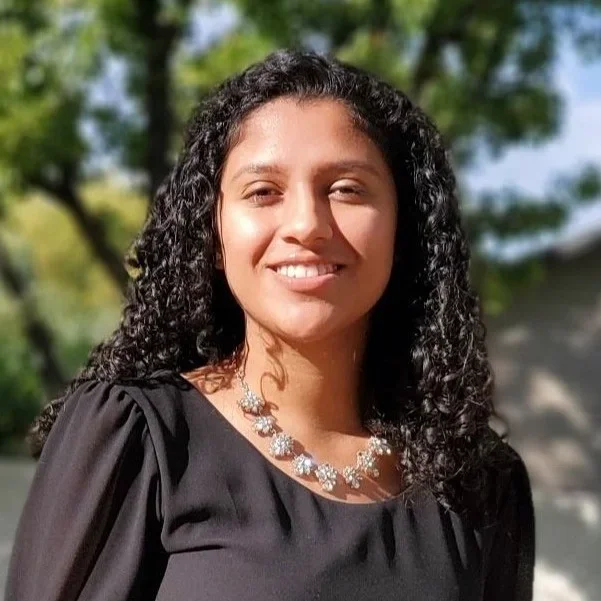Natalie Ayala has received the honor – the country’s most historic and prestigious national scholarship in natural sciences, engineering and mathematics.

This year, the program, established by Congress in 1986 to honor the lifetime work of Sen. Barry Goldwater, awarded just 441 scholarships to college students from across the U.S.
Each Goldwater Scholar annually receives an amount equal to the cost of tuition, mandatory fees, books, and room and board (minus the amount of support provided for by other sources), up to a maximum of $7,500 per full academic year.
“Natalie is an incredible scientist and individual. She possesses deep technical insight, a tireless work ethic and a genuine commitment to improving the experiences of astronauts in deep space missions,” said Kate Huebschmann, fellowship advisor in the Honors College.
Early and consistent promise
Steve Swanson, a retired NASA astronaut, commander of the International Space Station and Distinguished Educator in Residence, praised Ayala’s grasp of augmented reality and the intricacies of inventing and building tools for space exploration. “She designed and 3D printed all the attachment pieces for the lighting system, including a snap-on sunglass system with various tinting capabilities for the AR system. Her drive and abilities were way above that of the average engineering freshman,” Swanson said.
Ayala is a graduate of Kuna High School. She expects to complete her Bachelor of Science in Mechanical Engineering in December 2025. She is a NASA intern and co-lead of the NASA Microgravity team among other leadership positions.
Co-leading the team helped shape her desire to pursue a research career, she said. The team built a fully mechanical device to collect samples from the Moon’s surface without disrupting the top layer’s grain orientation. The team had to account for several factors, Ayala said, such as soil kicked up by astronauts’ footsteps, spacesuit limitations and the stability of the device as it collected material. “What I loved most about the project was researching each variable and problem-solving through each design iteration. It was like putting together pieces of a puzzle,” she said. NASA reviewed the team’s proposal and accepted it for testing at the Johnson Space Center in summer 2025.
“This was my first dynamic team collaboration, and I loved bouncing ideas off of my teammates seeing how one idea would lead to another,” Ayala said.
Conner Patricelli, a clinical assistant professor in the Department of Mechanical and Biomedical Engineering, joined Swanson in writing letters of support for Ayala’s Goldwater application. He taught Ayala in the course Experimental Methods, a cornerstone class for mechanical engineering students. “Even then, Natalie’s drive and determination were apparent as she pursued a position in our on-campus machine shop, demonstrating her proactive approach to hands-on learning and professional development,” Patricelli said. “Once she joined my class, Natalie’s remarkable talents and exemplary work ethic quickly set her apart.”
Ayala plans to pursue a Ph.D. in aerospace engineering. “As an undergraduate mechanical engineering student with a passion for space exploration, I aspire to lead a human factors engineering research team in designing mission tools for the Moon and Mars,” she said.
Ayala joins 11 other Boise State students who have received Goldwater Scholarships since the university’s first in 1991.